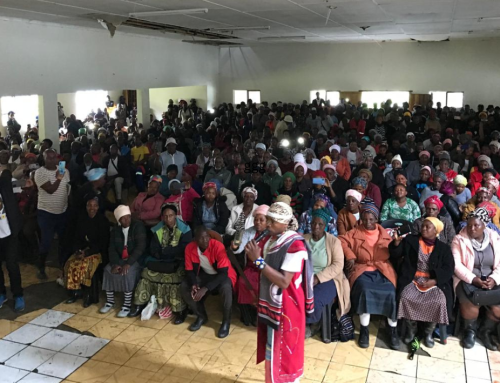Address by Mr ML Filtane, MP in Parliament
Honourable Speaker and members
Although agricultural sector’s relative contribution to the gross domestic product of the country is small and still declining, it nevertheless plays an important role in the creation of wealth and safety nets in South Africa, specifically in the rural areas.
Drought has severely affected the country’s agricultural productivity capacity and thus affecting negatively our Gross Domestic Product. It affects both crop and livestock farming devastatingly.
The loss of maize exports and the move to import more, results in the widening of the trade deficit. Agriculture export made up about 11 percent of South Africa’s total annual exports, surely this year, 2016, agricultural export revenue is likely to drop.
One sector within the agricultural economy that is normally forgotten when considering the effects of drought, is the emerging, small and informal agricultural sector. As a result of this omission, when drought relief programmes are planned and implemented, this group of farmers is left outside.
Mandla Nkomo, Operations Director at TechnoServe, which assists emerging farmers, had this to say:
the drought’s impact on its clients was devastating.
This is so because amongst others, these farmers depend on regulated irrigation and in times like these, water allocation is controlled and cut back. Many of the emerging farmers have been hard hit such that they had to write off their entire crop.
The emerging and informal farmers, are also vulnerable because they have no insurance, savings or anything like that, so during drought, they take the knock full on with no resources to reboot themselves.
In this regard, a combination of interventions has to be pulled together in assisting the emerging and informal farmers. They are very important in providing basic food security, fighting poverty and we need to make graduate into commercial farmers.
Amongst others, UDM propose the following, to be done to mitigate devastating effects of drought in particular on emerging and informal farmers:
Agricultural training including planning for drought as well as using the indigenous methods of responding to drought.
Government and the industry should move away from reactive methods towards more proactive approach towards drought and other natural disasters.
Capacitation of emerging and informal farmers so that they can grow into commercial farmers and consistently contribute to economic growth and employment creation in a sustainable and bigger scale.
Whilst these farmers are unable to afford the insurance rates, government should consider subsidising them. Further, government should educate these farmers on how they should develop drought plans and the drought mitigation and coping strategies. Once they have these tools in place, the insurance premiums will be affordable and government can pull-out his subsidy.
All of this must be accompanied by a realistic, reasonable and requisite rural infrastructure development programme to support rural development.
Thank you




















